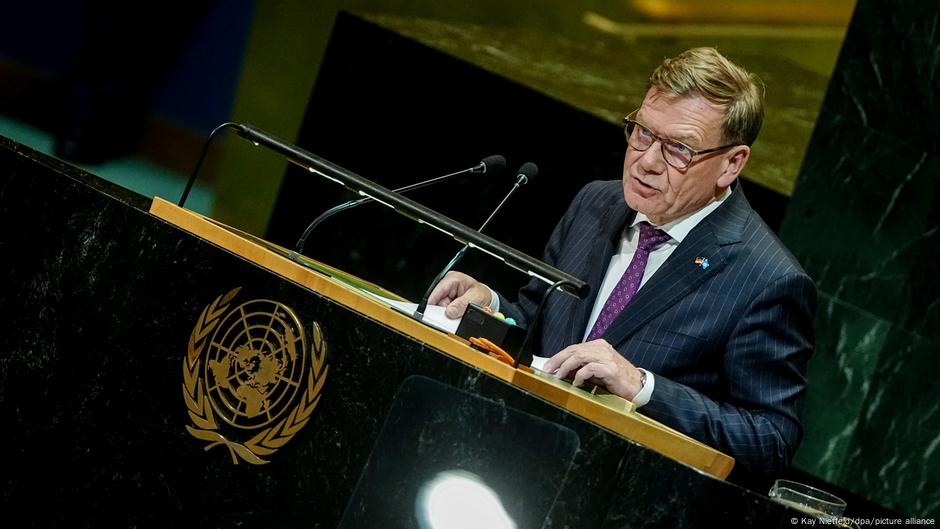UNGA: Key Foreign Ministers to Address Global Issues

Key Leaders Address the UN General Assembly
On Saturday, several prominent foreign ministers and world leaders are set to deliver their speeches at the United Nations General Assembly (UNGA). These include Germany’s Johann Wadephul, India’s S. Jaishankar, and Russia’s Sergey Lavrov. Their addresses will cover a range of pressing global issues, including the push for Palestinian statehood, the ongoing conflict in Ukraine, and tensions between India and Pakistan.
The discussions are expected to be intense, particularly given the recent developments surrounding the recognition of Palestine as a state. Israeli Prime Minister Benjamin Netanyahu has strongly opposed such moves, calling them "disgraceful" and warning that they could encourage further violence against Jews and innocent people. Meanwhile, Palestinian President Mahmoud Abbas has condemned both Israel’s military actions and the October 7 attacks by Hamas, emphasizing the need for peace and stability in the region.
Iranian President Masoud Pezeshkian has downplayed Iran's nuclear ambitions while advocating for measures to prevent the reimposition of sanctions from the UK, France, and Germany. Ukraine's President Volodymyr Zelenskyy has warned of an escalating arms race and expressed concerns about Russia's growing influence in Moldova ahead of its parliamentary elections.
Global Responses to Major Events
In addition to these key figures, several other world leaders are scheduled to speak at the UNGA. The debate has been dominated by the situation in Gaza, where Israel’s military operations have resulted in significant casualties and displacement. Many leaders have called for an immediate ceasefire and increased humanitarian aid to the region.
During his speech, Netanyahu addressed the international community, condemning Western countries that have recognized Palestine as a state. He accused them of being influenced by "antisemitic mobs" and "hostile media." His speech was met with protests, with dozens of delegates walking out before he began speaking. Despite this, Netanyahu emphasized Israel's right to defend itself and reiterated his stance against any recognition of a Palestinian state, which he described as "national suicide."
The US State Department recently revoked the visa of Colombian President Gustavo Petro after he made controversial remarks at a pro-Palestinian rally. In his speech, Petro urged US soldiers to disobey orders and incite violence, leading to the decision to revoke his visa. This incident highlights the growing tensions and complexities within the international community.
Multilateralism and Diplomacy
Chinese Premier Li Qiang defended the multilateral world order during his speech at the UNGA. He highlighted the importance of cooperation and collaboration in addressing global challenges, contrasting his views with those of former US President Donald Trump, who criticized the UN earlier in the week. Li warned against the resurgence of unilateralism and protectionist policies, which he believes threaten the stability of the international system.
Pakistan's Prime Minister Shehbaz Sharif criticized India for what he described as "unprovoked aggression" and "arrogance" during a brief war between the two nuclear neighbors. He also addressed India's suspension of the Indus Water Treaty, a critical agreement that has facilitated cooperation between the two nations. Sharif emphasized the importance of defending Pakistan's rights to water resources, stating that any violation of the treaty would be considered an act of war.
Ongoing Conflicts and International Reactions
The situation in the Middle East remains tense, with ongoing discussions about the potential for renewed conflict. Iranian Foreign Minister Abbas Araghchi has accused Western countries of misrepresenting Iran's peaceful nuclear program, while the UK, France, and Germany prepare to impose snapback sanctions on Iran. These sanctions, which were delayed due to a failed resolution backed by China and Russia, are expected to take effect soon.
In another development, the US has rejected a UN political declaration on non-communicable diseases, citing concerns that it overlooks more urgent health issues. Health Secretary Robert F. Kennedy Jr. stated that the US will not support the declaration but remains committed to addressing chronic diseases globally.
As the UNGA continues, the focus remains on fostering dialogue, promoting peace, and addressing the complex challenges facing the international community. With so many leaders and representatives present, the assembly serves as a crucial platform for discussing global issues and shaping future policies.
Comments
Post a Comment